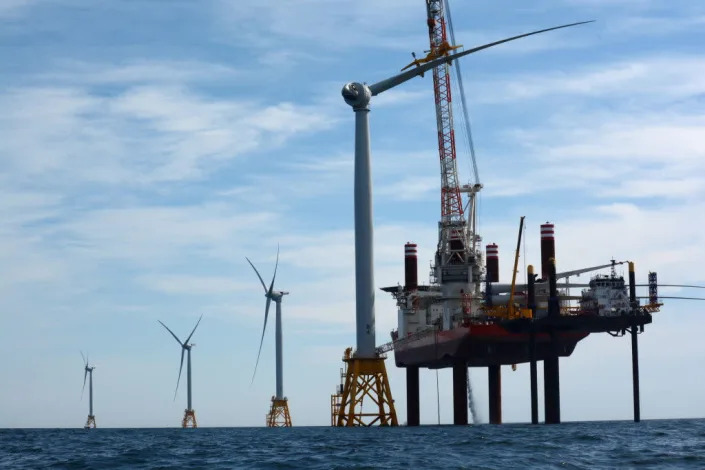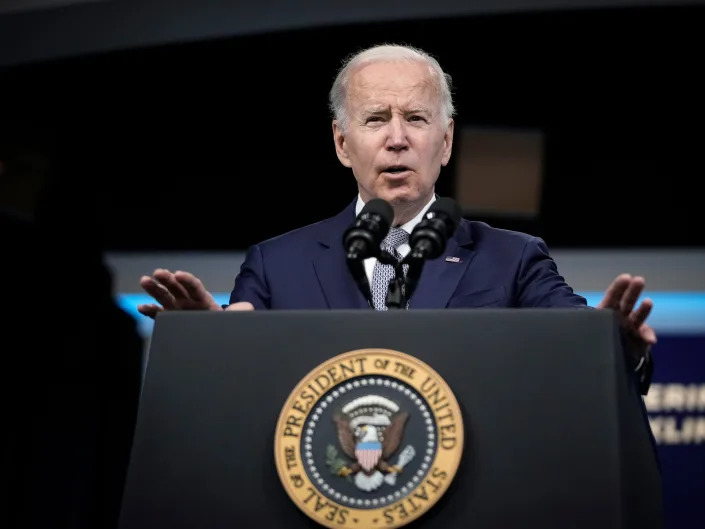Abortion pill access sets up fight with manufacturers, federal government
Amid the Supreme Court's decision to overturn Roe v. Wade, FDA–approved abortion pills are among the targets of states that outlaw or limit abortion.
The ensuing battles over rights to sell, purchase, and prescribe the drugs raise a host of untested legal questions.
On Friday, immediately after the ruling — which knocked down the landmark case that protected a women’s constitutional right to an elective abortion for the past 50 years — at least nine states enacted pre-approved laws known as trigger laws that ban or limit abortion within their borders. While some of those laws are on hold due to legal challenges, 26 U.S. states are predicted to take similar steps as a result of the decision.
Limited abortion access has sparked debate over diminishing access to abortion-inducing drugs. Under the Supreme Court’s ruling in Dobbs v. Jackson Women’s Health Organization, states rather than the federal government have authority to regulate abortion. And with that authority, state governments could more directly target the medication.
Dara Purvis, a law professor and expert on reproductive rights at Penn State Law, predicted that states already taking steps to limit abortion will also push to outlaw the drugs.
“Anti-abortion states that are on the forefront of this are going to try to ban the pills, altogether," Purvis said, noting 19 states have enacted laws either banning or restricting abortion through telehealth appointments, and by requiring patients to personally visit a medical facility in order to pick up abortion medication. "I think that's clear." According to pro-choice advocacy organization, Guttmacher Institute, 32 states require that only licensed physicians prescribe the drugs.
So far, states have held back from making sales or purchase of the medication illegal. However, Rachel Rebouché, interim dean and law professor for Temple University School of Law, said that states with abortion-limiting laws have achieved near equivalency of outlawing pills by limiting providers’ authority to prescribe them.
“All the states that have put into place trigger laws that are enforced, in effect banned medication abortion,” Rebouché said.
Those state laws, Purvis said, rest on relatively solid legal footing because states are vested with power to regulate medical professionals practicing inside their borders. “It seems pretty likely that that's within the power of the state,” she said.
Two U.S. companies have FDA approval to produce and sell mifepristone, the first of two separate drugs taken to terminate pregnancy in a medical abortion: brand manufacturer Danco Laboratories and generic manufacturer GenBioPro. Another drug, misoprostol, also used to treat ulcers and other ailments, is used in the second step of the two-pill regimen.
So far, Danco said it hasn’t received communication from any state governments that have enacted trigger laws, though it expects the market for the drug to undergo drastic change. The company’s representative said it continues to ship its mifepristone as normal.
Legal scholars explain that state bans on the drugs themselves would set up a fight not only with manufacturers, but also with the federal government, specifically the FDA and Justice Department — scenarios that have little, if no, legal precedent.
“There isn't really another area of law where states have tried to restrict actions or create legal liability over this broad of a category of actions,” Rebouché said. “So there isn't a deep or rich history of cases that tell us how courts are going to rule.”
Rebouché and others said just one instructive case offers clues for how a court might rule on a manufacturer's challenge against a state drug ban. In 2014, a federal district judge enjoined the state of Massachusetts from banning Zogenix's opioid called Zohydro, despite the state’s argument that it endangered its citizens.
“It’s a plausible argument but not a slam dunk case,” Stanford University Law Professor Hank Greely told Yahoo Finance.
GenBioPro is testing similar waters in a federal lawsuit that challenges a Mississippi state law that blocks doctors from prescribing abortion drugs by way of telehealth visits. The case, filed in 2020, is still pending and was put on hold to await the Dobbs decision. In court filings, GenBioPro argued that Mississippi’s law contradicts the FDA’s approval of mifepristone and that the agency’s federal policy preempts the state’s restriction.
“That is the kind of litigation that might occur to press this point,” Rebouché said. If states argue the drugs are unsafe or ineffective, she suspects the FDA will have a strong case for trumping state law. She and Greely caution that the preemption argument becomes less persuasive though if states argue that a ban should be upheld on moral grounds, or to protect the life of the fetus.
Greely said states could try to bolster their case by arguing that abortion pills, specifically when used for abortion, should be banned not because they are unsafe or ineffective, but specifically because abortion in the state is limited.
“It seems to me harder to make a successful claim that federal law through the FDA preempts that action,” Greely said, adding that the merits of both arguments are unclear.
Established case law also supports the idea that on issues of broad importance and societal impact — under which the right to abortion and the protection of fetal life could arguably fall — Congress must explicitly hand over certain regulatory powers to a federal agency in order for it to assert it. That's another legal argument the lawyers anticipate from states.
“At the end of the day, it will be a federal court that decides if preemption applies,” Rebouché said.
Alexis Keenan is a legal reporter for Yahoo Finance. Follow Alexis on Twitter @alexiskweed.














